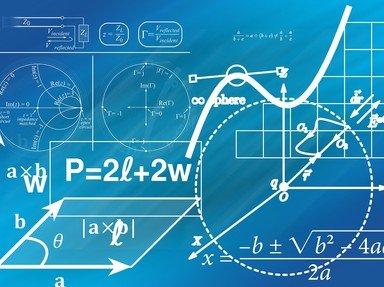Quiz Answer Key and Fun Facts
1. The concept of infinity can be traced back a long way, including to an ancient culture that gave us the mathematician Pythagoras. Which one?
2. Georg Cantor is credited as being the first to adequately define infinity in its modern form. What theory, based on groupings of numbers, did he use to do this?
3. What is the symbol for infinity?
4. According to Cantor's calculations, what is infinity plus one equal to?
5. What is infinity divided by infinity equal to?
6. A googolplex is such a big number that it is considered equivalent to infinity.
7. What happens if I multiply any number (except zero), x, by infinity? What is the result?
8. This one looks a bit more straight-forward (but is it?). What is the result of subtracting infinity from infinity?
9. Part of Cantor's theories of infinity actually identifed a hierarchy of infinities (that is, some infinite sets that are bigger than others).
10. One more mathematical question to finish with: should be an easy one now that you've had all that practice. What is infinity multiplied by infinity?
Source: Author
timence
This quiz was reviewed by FunTrivia editor
WesleyCrusher before going online.
Any errors found in FunTrivia content are routinely corrected through our feedback system.

